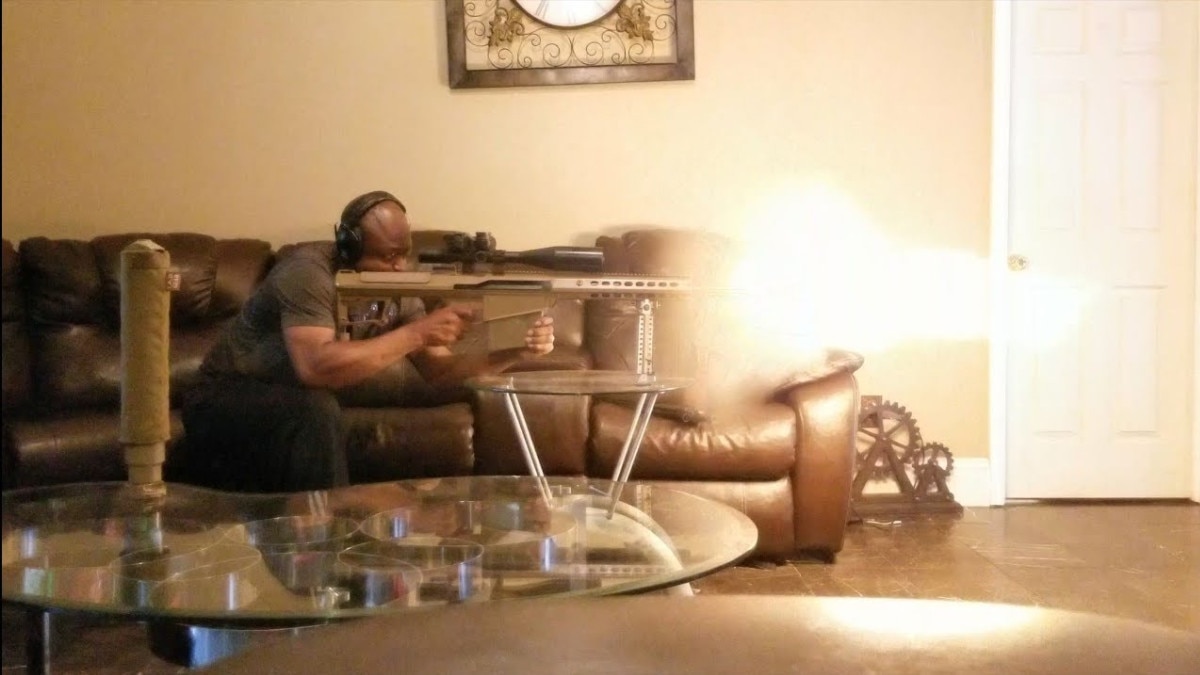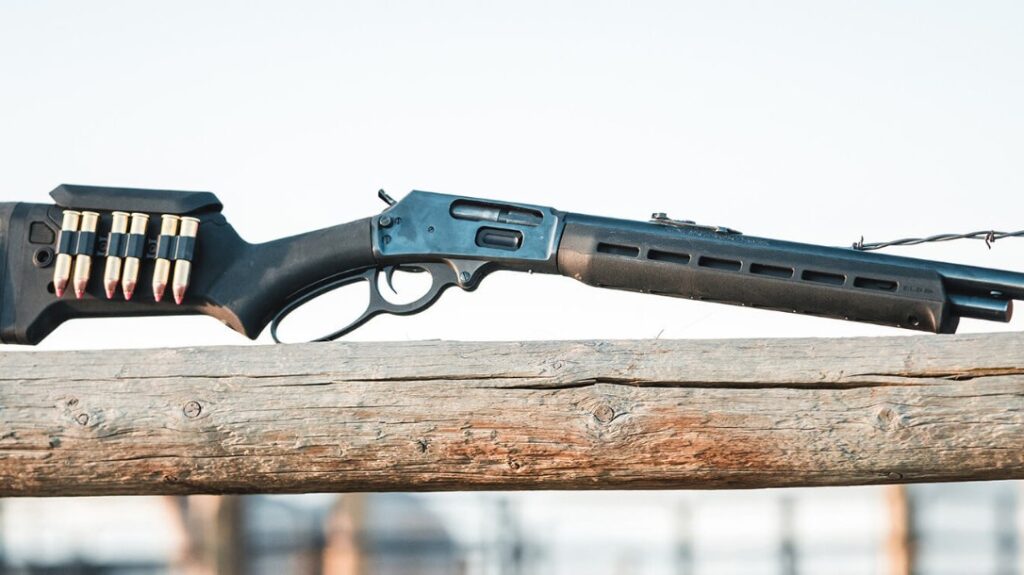This. Is. Gold.
My Turn: Breaking free of the intoxicating power of guns
Full credit to the author for bringing forth their opinion on the issue and how they feel. It is and will forever remain their right to do so. But I retain my equally opinionated rights to pick it apart as an emotive farce pretending to be logic. So here we go.
I felt despair [emphasis added] as I recently read in the Monitor that New Hampshire House Republicans have reversed the rule banning firearms and deadly weapons from the House floor and gallery.
Advertisement — Continue Reading Below
Strong opening, you are in the irrational and highly emotive state of despair. Despair: the complete loss or absence of hope. You have lost all hope for your state, New Hampshire, and are an emotional wreck beyond rational thought and decision making over the choice to allow the carry of lawful arms into the house floor and gallery.
That rule is not unique to New Hampshire, it is something that hasn’t produced and gunfight on the floor in any locale that allows it nor resulted in the turning of any such gallery of legislative observation into a shooting gallery (Yes, I said it.. or wrote, technically) Even the heated debates in Michigan as open carriers came into the capitol resulted in no shots fired as folks protest the curtailment of the civil rights, liberties, and for many the ability to feed their families lawfully. The 20,000+ in Virginia last January resulted in not a single noteworthy incident either.
But you despair at a decision with active parallel practices in other states coming to yours? I don’t believe we can safely trust you in an aisle seat on a plane if this is your reaction to a simple rule change. Anyhow, back to the piece.
Advertisement — Continue Reading Below
I wondered why mature, educated men and women, leaders in our state, would vote to increase the risk of attending House sessions by condoning the presence of firearms. Why did it bother me so much? And why was this reversal so important to them?
Excellent backhanded compliment! Infer that they idiots by stating, factually, they are increasing the risk by condoning the presence of firearms despite mountains of evidence (evidence being bodies) definitively proving that a location’s prohibition on firearms is no effective defense. In short any honest risk analysis (something they probably did but you didn’t bother with) would find that altering this rule is of negligible to no different a risk than was actually already present based upon the realities of physical security in the House. Furthermore, there is a net increase in safety (as demonstrated by armed self defenders) in House members and gallery attendees and observers being able to legally respond if something should occur.
It is not as if murder, attempted murder, aggravated assault, or terroristic activities become a little more palatable and slightly less illegal just because a firearm is allowed to be legally present. Nor does it become easier. Oh it certainly sounds easier on the surface but this presumes a difficulty was in place previously that really wasn’t.
Advertisement — Continue Reading Below
Would a prohibition prevent even a moderately determined assailant from causing harm greater than the comparative safety allowing Reps, staff, and visitors to be legally armed does? No, under any remotely reasonable assessment of physical security, a rule prohibiting carry is nearly worthless. A public space is incredibly difficult to secure and doing so is astronomically expensive.
Look at the failure rate of the TSA’s screens and then please preach to me how putting a rule on the books, even with some token infrastructure in place to enforce it, actually improves security measurably enough to be worth hassle…
Unless you purpose isn’t physical security but instead to signal.. your virtue!
Advertisement — Continue Reading Below
These questions led me first to examine the source of my own feelings.
Called it.
When I was a boy, my friends and I played with cap pistols. The pistols held paper strips of caps, each cap containing a small quantity of explosive powder. When the trigger was pulled, a hammer would hit the cap and produce a cracking sound – a pretend gunshot. We wore holsters and practiced quick-draws. In our games I imagined always hitting the enemy but never being hit. We felt invincible walking around with our harmless toy guns.
Advertisement — Continue Reading Below
When I was a teenager I lived on a farm. I hunted pheasants with my father and shot woodchucks that grazed on our garden vegetables. The kick against my shoulder when I fired the shotgun transferred to me a feeling of power and domination. Whenever I hit the prey, I felt a surge of pride and superiority. It gave me self-confidence knowing that my gun in the rack at home was always accessible to me.
Ah, the “I’m just a good ole’ boy like you guys, so listen to my enlightened opinion as if it were gospel.” card. A ploy used to invalidate differing opinions if they differ too far from yours while simultaneously making you seem the ‘everyman’ (or everyperson) so that your position is the only one that is moderated with reason. Almost… ‘common sense,’ eh?
“The kick against my shoulder when I fired the shotgun transferred to me a feeling of power and domination.“
Advertisement — Continue Reading Below
I just get a sore shoulder, but I’m glad you had a good time turning this into a philosophy lesson instead of a physics equation. It would be shame if you then used this formative experience as a ‘naïve younger point’ in order to imply that folks who hold skill at arms in higher regard or esteem as a personal trait are still somehow juvenile and immature in their beliefs.
Later, during my college years I found myself discussing human ethics with friends. The establishment of the draft, which included a process for applying for conscientious objection to war, led to bull sessions among friends about the ethics of war and the killing human beings. We consulted philosophers and theologians. Some of us began to gravitate toward a position of nonviolence. However, to choose this commitment meant burying childhood and teenage feelings of elation and puffed-up ego accompanying gun possession and use.
Oh, look. You’re doing that.
Advertisement — Continue Reading Below
Then, at 24, I was drafted into the Army. My anxiety about having to kill in battle led me to volunteer to train to be a medic. But it did not save me from rifle training. And it did not save me from a resurgence of the old excitement and feelings of power guns gave me in my youth. More distressing was having those old feelings return while shooting at human-shaped targets. I enjoyed hitting those targets and keeping score. It felt good and empowering. My ethic about rejecting the use of deadly firearms was overwhelmed by the thrill of the firing range.
Skill in arms is intrinsically and quantifiably valuable. It’s okay to enjoy the skill and still not want to kill someone.
Well as long as you don’t become projectionist and assume that because you and others you hung out with in college have moral or ethical quandaries about taking human life, yet do not seem able to validate that under certain circumstances killing someone is entirely justifiable and that war, conflict, and conquest are an inalienable part of the human experience despite what you and your crew of early 20-somethings believe you’ve figured out about the utopian human experience.
Advertisement — Continue Reading Below
It seems human nature includes an inclination toward invincibility, superiority, and security. They are the reward for embracing firearms and deadly weapons. They give a person the arrogance of the legendary gunfighter who seeks to have the fastest draw in the West. They bask in the thrill of possessing force and power over all comers.
Oh… look… you’re doing that…
It’s not about you. It is about the people who differ from you. The differing outlooks and perspectives you will interact with and may come into conflict with. Physics man, equal and opposite reactions. The force required to stop an undesirable act is equal to or greater than the force being acted out.
The differences between each individual, each family, each group which will ascribe varying values to differing skills and ideals should not be demeaned so casually.
You can hold the belief that all war is immoral and that there is never a circumstance that justifies then ending of human life to you. To fail to recognize that not everyone holds that same opinion, and that some of those folks are righteous while others are nefarious, is truly juvenile.
However, this arrogance mocks civility, destroys relationships and leads to the moral decay of the nation…
Says you. Your opinion. Your projection of your morality.
…Human beings can aspire to do better. Our New Hampshire legislators can aspire to do better…
Based upon your projected definition of better? What about those who feel better with the freedom of a free people to freely carry their lawful arms at their convenience? For such people recognize that the bearing of arms against their personal harm and the harm of their community is as natural to the sovereignty of an individual as their rights to speak their mind, redress a grievance or breach of contract fairly in a court, or vote for their representation.
…They can begin by focusing less on “Live Free or Die” and the Second Amendment. No law can regulate attitudes. They can begin by abandoning the arrogance of the right to carry weapons…
Then why are you trying to regulate their attitudes!? So you can feel better? What about those whose peace of mind and physical safety you compromise with your feelings?
Your personal moral ultimatum does not translate to actual physical security. The Army didn’t teach you to declare, “The enemy cannot bring arms here.” and simply expect the enemy, the antagonizing body or force, to comply. The Army taught you to take a knee, face out, eyes up, scan your sector, and drink water. To be ready to repel an enemy assault by fire and close combat, not a civil tone and attitude.
Now you use the arrogance of disarmament to project that because the vast majority of people around you are not actively seeking to harm you, that therefore means that nobody is seeking to harm anybody, and that the only flaw in this utopian pile of projectionist wishful thinking are those naïve immature (remember setting that connection up earlier) people who “arrogantly” carry arms, just in case someone seeks to harm them.
You do not allow for the remotest possibility that their carriage of arms comes from pragmatism or realism, it can only be arrogance and immature feelings of power, because of your little philosophy lesson. The lesson which set up anyone who disagrees as immature by comparing their attitudes to the one that you held during your self ascribed immaturity. The irony is the sheer arrogance of believing it is only arrogance that drives this decision.
You want your attitudes to prevail, to regulate the attitudes of the House and the public, while openly admitting attitudes cannot be so regulated. Kind attitudes, friendly dispositions, and good intentions do not turn the blade or bullet of someone who has decided that for them to succeed and advance their motive, you must die. Force is a simple equation that does not ascribe to an altruistic moral authority.
So having acknowledged that, which is the safer pragmatic option. To have the flotation device in case of a water landing or to arrogantly proclaim that merely allowing the inclusion of the flotation device makes crashing into the water a greater risk as pilots will arrogantly flout their defiance of water because everyone can float.
…The old days when U.S. legislators brawled on the floor of Congress and challenged each other to duels are past – hopefully…
But their days of being shot for being the wrong team sure as hell aren’t.
…Our leaders can begin with a spirit of hospitality and trust of constituents…
They are trusting them to carry guns around them. That seems quite hospitable and trusting. The House trusting a free people and their membership body to act responsibly, civilly, and with discipline in their defense and conduct. Should any singular individual or group with ill intent and contrarily aligned goals decide that force is now the way to enact their variant on morality, that now openly carries the risk of deadly defensive reprisal.
…They can begin to develop the skills of empathy, negotiation, reconciliation, and trustworthiness. These skills are far more effective in building relationships and defusing conflicts than waving threatening guns
So now they are waving them? Threateningly? Maybe they should have a rule against that?
It is a crime to brandish firearms in New Hampshire illegally. Anybody that uses a firearm in a threatening way, such that it puts another person in danger, is guilty of misconduct. Attempting to put someone in fear of physical injury or imminent death is criminal threatening.
Oh look, they do.
We need the example of our legislators to help us turn our country from a dependency upon violent coercive power.
What other power do you honestly believe the state wields? I know what you were getting at but as I just pointed out above it is as illegal to do that in New Hampshire as anywhere else and it shows a fundamental misunderstanding that a state is just a legitimized wielder of force. We have agreed, through the formation of rules and representatives, that this force is legitimate force. “Violent Coercive Power” is all a state ultimately has, ultimately is, we just agree (with variances) to the rules to try and keep that power working in our collective best interests.
Well at least we haven’t seen a skewed statistical appeal to authority.
The United Nations Office of Drugs and Crime conducted a worldwide small arms survey. It reported that the United States experienced 29.7 firearms homicides per million people in 2012. The next highest country was Switzerland with 7.7 per million. These statistics do not describe our aspirations for civility, equality, and justice for all.
Oh look.. a skewed statistical appeal to authority.
Funny how the same UNODC (United Nations Office on Drugs and Crime) lists the United States 94th in the world for intentional homicide rate out of 230 nations and territories. Switzerland, the country listed as ‘next’ is 204th. But isn’t it convenient that we ignore 93 countries (to include Russia whose rate is 65% higher than ours), none of whom have the private arms we do (because nobody does, ‘Merica!), that have a greater rate of intentional homicide than we do? Or are we back to just caring about “gun” deaths, which are much deadlier deaths than other murders.
The cherry picked parts of Europe does not a convincing argument for ‘civility’ make. Unless you’re saying older, smaller, more homogenous societies have lower murder rates.
Let’s look at it another way. The nation with the second largest number of arms in private hands is… India, with an estimated 71,101,000 guns. 61,401,000 of those are unregistered. Why do I mention that? Because its one of those scary gun control words.
Now how many people were murdered in India? 41,651 (2018)
Based upon available data what how many were killed with a firearm? An estimated 4,027.
Now the United States, where 16,214 (2018) people where murdered. By guns? 10,265 according to the FBI, but their numbers are not the same as UNODC’s, FBI listing only 14,123 murder victims. The CDC lists 13,958 firearm homicides for 2018 and 18,830 homicides in total (including justifiable I believe which may not accrue in UNODC numbers) so we’ll call firearms significantly higher as a method of injury. We have 400,000,000 of them to their 71,000,000 so that makes sense.
And yet India managed to put 25,437 more people into their graves intentionally, than the United States. More than 2.5 times as many people murdered than the ‘uncivil’ gun toting Americans. But thanks to the enormous population of India, that 2.5x body count being the second highest in the world, they are 118th place to the United States’ 94th place for homicide rate.
Who was first?
Brazil is first in murder, with 57,358. Yet only 17,510,000 firearms (about half of which are registered with the government) and a population a little over half of the US at about 211,000,000. Their firearm homicide rate is 5x ours here in the US.
Is Brazil not seeking to be a civil country? Wouldn’t the fact they have 1 gun for every 23 we have and that half are registered with the government show that they are a country seeking civility by rejecting arms?
Or does using more data make for a different story? A more complex story, perhaps, where virtuous signaling of virtues signaled toward American civility have to contextualize and deal with harsh and unforgiving realities, like that not everyone virtuously virtues as you do.
Some people hold other traits as virtuous, and that is fine. So perhaps rein in projecting yours and you won’t be so bothered with mine.
We deserve better. It begins by refusing to feed the emotional high of guns on the floor of the Legislature.
I hope to soon read in the Monitor that the rule banning firearms and deadly weapons from the House floor and gallery has been reaffirmed. It will be a start on the long road to real freedom from violence and coercion.
You really don’t understand how the state enforces its authority… *sigh*
You have no freedom from violence.
You have no freedom from coercion.
Hell, you have no freedom from catching a cold.
You have in place a State, which is an agreed upon (within societal margins) mechanism for both violence and coercion.
You have the freedom to respond to violence and coercion, not the freedom from. Either through the mechanism of the State, laws, lawsuits, criminal proceedings, and so forth, or through your right to defend yourself and/or your community from great and immediate harm through force.
But that’s just like.. my opinion, man.















